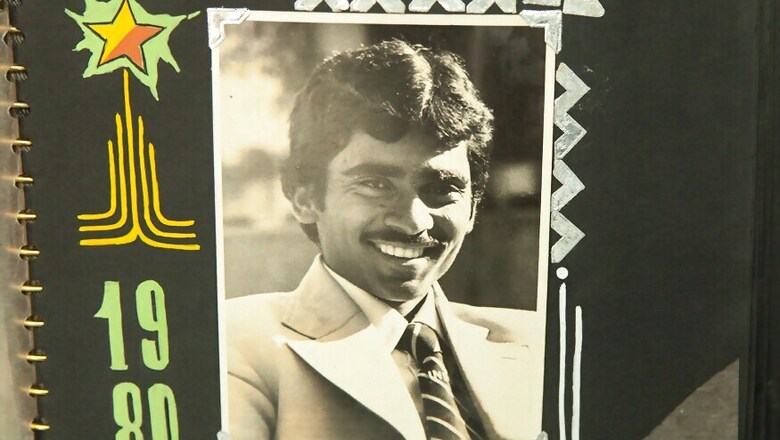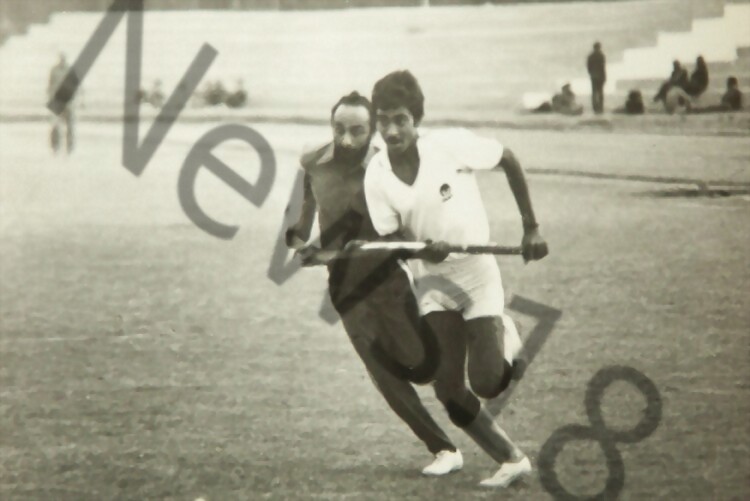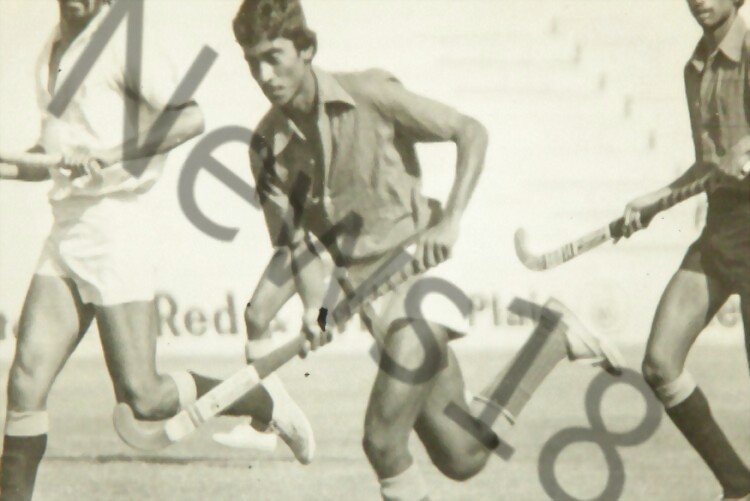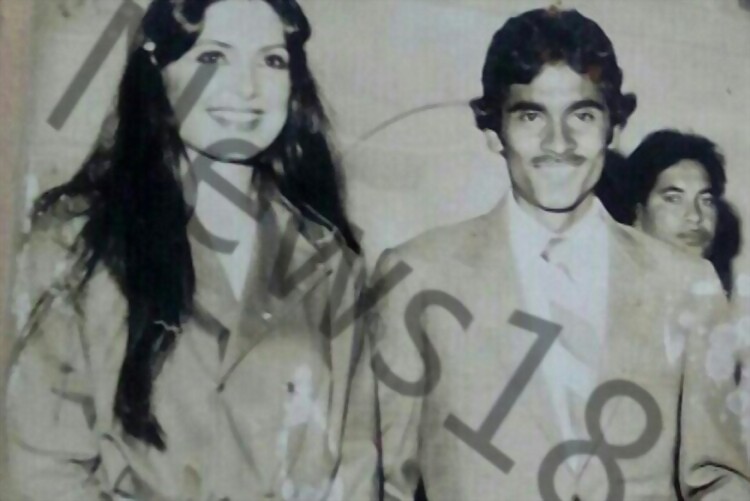
views
I have been dreading writing this ever since I got a phone call from Ashok Kumar, a legend of Indian Hockey in his own right and the son of hockey wizard Dhyan Chand, informing me about the deteriorating health of Mohammed Shahid.
I consider myself extremely unfortunate to have never seen Mohammed Shahid play. He retired after the 1988 Olympics and my first memories of a hockey match is the 1990 Asian Games final. However, the legend of Shahid grew on me during my days as a reporter covering hockey.
I met him for the first time at the send-off for the Indian team to the 2012 Olympics. He hardly spoke and a few reporters, including Harpreet Kaur Lamba of the Asian Age and Shivendra Kumar Singh, then of ABP News, requested him for a photo which he readily agreed.
My producer for 'India’s Champions', our special series on the Rio Olympics, Amit Bose and I were discussing the possible legends to be featured with Nakul Shivani,
CNN-News18’s in-house hockey expert one evening in March. We had an ambitious plan of revisiting the golden legacy of Indian Hockey at the Olympics and Nakul was insistent that any show on the Olympics had to feature Mohammed Shahid.

I called my friend Shailesh Chaturvedi who has always been my guide when it comes to hockey and asked him for a number for Shahid and a reference call which he immediately did. I then called the great man and asked him for some time. To say he was extremely difficult to get hold of is an understatement. I felt upset but later, as I kept calling him, I understood the reasons for him being rather uncomfortable facing the media.
Shahid never recovered from the death of his young daughter and until his dying day blamed himself for her death.
Maine Hockey ke liye apni beti kurbaan kar di, Digvijay (I sacrificed my daughter for hockey)," was what Shahid bhai admitted after many phone conversations.
I had spoken to former India captain Jagbir Singh for a chapter in my book ‘My Olympic Journey’ and he had mentioned being with Shahid through those troubled times at the 1988 Seoul Olympics when Shahid would take him along to the phone booth daily to book a call to India to enquire about the health of his daughter.
After much persuasion, Shahid agreed to meet me in Varanasi or Benares as he called his city. "Agar main Lucknow ka hota to main Mohammed Shahid nahi hota. Main apne aap ko bada lucky maanta hunk ki main Benares ka hun. (I would not have been Mohammed Shahid if I had been from Lucknow. I am extremely lucky to be from Benares)"
It was a powerful line from the legend which struck me immediately. In fact, we started our segment on the 1980 team with that quote from Shahid. Later that month I met Vasudevan Bhaskaran in Chennai, the captain of the gold medal-winning team in Moscow. "You met Shahid! He is the King of Benares".
It was then that I realised why Shahid was uncomfortable meeting us at one of Benares’ famous ghats. "Wahan bahut garmi hai aur bheed bahut hoti hai, hum ghat pe aapko interview nahi denge (It is very hot at the ghats and very crowded. I will not give an interview there)" was what he told me when we asked him to accompany us there.
That hesitation didn't go away. He called me the day before we were to arrive and abruptly cancelled the shoot. "Hume Lucknow jana hai kuch kaam se, to maaf kijiyega hum Saturday sirf lunch tak aapko time de sakte hain (I have to go to Lucknow for some work, so I can give you time only until lunch on Saturday). We were flummoxed by his last-minute cancellation as we were to arrive in Benares only at noon by train leaving us no time to complete our shoot. However, we were clear that we wanted Shahid on the show; and Amit and Siddharth Subramanian air-dashed to Benares on Friday night to be able to get some footage.

That was when I saw the other side of Shahid. He kept calling me and Amit all the time to inquire if they had landed safely and found their way to the hotel. The next morning he didn’t go to office and spent time with them at his house and later at one of his favourite sweet shops. I reached Benares at noon and at 1 pm got a call from him: "Partner, pahunch gaye (have you reached)?”
Amit had already shown him pictures of the shoots we had done for the series, pictures of Balbir Singh Dosanjh, Charanjit Singh and Ashok Dhyan Chand in Jhansi. Shahid saab realised this wasn’t any other banal interview that he was to be subjected to and later that afternoon called and said he was not going to Lucknow and would wait for us the next day.
That is where I met him, at his impressive house away from the maddening rush of Benares. And thus began an interaction that went on for a couple of months, almost weekly.
I asked him if he missed being away from the spotlight. “I am happier being in Benares where I am loved. I do not need the money. I get paid well by the Railways (he was a Sports Officer and the Railways paid for all the medical expenses during his hospitalisation in Gurugram), and I also have two houses in Benares."
I wanted to know of his initiation into Hockey. “They used to laugh at me, call me a loafer as I used to spend all my time playing Hockey even bunking school to play. Once someone asked me why I was wasting my time and I replied I will play for India one day. They laughed and called me mad.”
I was starting to enjoy this conversation, perhaps not realising that for years this man had wanted to open about his exploits in hockey. His language, at times in perfect Urdu, was like music to the ears and sadly we could not use much of his interview as we were limited by the constraints of a forty-minute documentary.
This was a very proud man.
I do not understand this fascination for hitting the gym to stay fit. I used to wake up at 4:30 a.m. and run cross-country to Sarnath. I played in three Olympic Games and that too on astro-turf but never once did I have a muscle injury or an ankle problem.
He was extremely proud of what his team achieved in the 1980 Moscow Olympics. He scored the winning goal in that tense final. His partnership with Zafar Iqbal is the stuff of legend. But what really excited him was his duels with Pakistan.
“Pakistan to hum aise jaate the jaise Orderly se Kacchehri (we used to go to Pakistan as regularly as going from Orderly to the Court campus in Benares)". 1986 me maiine Hasan Sardar ko itna dodge mara ki wo gir gaye. Ek baar ball mile to peeche nahi dekha humne (In 1986, during a Test series, I had the great Hassan Sardar on the ground with my stick-work. Once I got the ball, I never looked back).
Another anecdote which had him chuckling was the comeback against Germany.
India, under his captaincy, trailed Germany 0-5 at the end of the first half in 1986. He remembered fondly the comeback that began with Pargat Singh’s goal.
“Logon ne TV band kar diye half time par ki match khatm. Jin logon ne match nahi dekha uske baad unhe hockey ka kuchh pata nahi” (People shut off their television sets after we conceded five goals. Those who did not watch that match did not know what hockey was all about)."
I sat in rapt attention, hearing him reel off one anecdote after another. My heart instantly warmed up forgetting the problems we had encountered getting to this stage. When the interview finally got over, I looked at Amit and the rest of the team. Each one of them had been spell-bound. Such was the magic in his voice.
This was a man who had been wanting to express himself but had been holding himself back. I immediately thought of the movie ‘A Few Good Men’ where Tom Cruise tells Demi Moore that he wanted to put Col Jessup (Jack Nicholson) on the stand as Jessup wanted to proudly stand up and say he ordered the ‘code red’ that led to Private Santiago’s death.
The years of neglect had hurt him. "Why should I go and fall at Hockey India’s feet; they know I am here. They may have forgotten me but Benares loves me, that is what matters.”

That day there was a bond that emerged between us. We wrapped up our shoot and he kindly let us go through his personal archives. “Everyone wanted a photo with me. I was invited to parties. See, here is a photo with the late Smita Patil, this is one with the late Parveen Babi. God gave me everything. I captained my country, won an Olympic Gold. I am content."
I didn’t agree. He had created a world for him in which he felt he was content. But deep down he felt let down. At times, the mask would slip. "Who are these people who come on TV and pose as hockey experts?”.
It was already beyond lunch time and we had to leave. As we said our goodbyes, he came over and hugged me. “Partner, bahut kam log aise hain jinke sath baat karke mazaa aya. Phone karte rehna. Shailesh (Chaturvedi) ko bolna mujhe phone kare. Kabhi kuch chahiye to phone karna. Hum Delhi ayenge to phone karenge. Hamari beti kaam karti hai wahan pe. Kahan ye sab hamari patni ko pata hai. Railway ke kaam se aate hain to New Delhi station ke Platform 1 me rukte hain. (I enjoyed speaking to you. Tell Shailesh to call me. If you ever need anything, call me. I will call you when I come to Delhi. My daughter works there but I do not know where. I stay at the retiring room on Platform 1 at the station when I come.)"
There was a warm smile on his face as I left. I didn’t know that was the last time I would see him. I didn’t feel like going to see his mortal remains at the hospital after he passed away. I wanted to remember that smile on his face forever. That day he was the Mohammed Shahid of old. He was happy being transported back to a time when he ruled the world of hockey.
He called me four times that day. “Did you get back? Did you have lunch? Did you reach the station on time. Has the train left?”. I was floored and so was Amit.
The next day was a difficult one. Amit’s father passed away hours after we returned. Shahid saab called to ask if we had reached safely. I did not want to tell him but later when I mentioned it after a few days, he immediately called Amit.
I got busy travelling after that. I was in Bengaluru to shoot with the Women’s Hockey team when the phone rang. “Partner, bhool gaye?” And so it was. Each time he would call it would begin with ‘Partner’.
I met David Ian Bell in Bengaluru. David Captained Australia to the 1986 World Cup title and had just joined the women’s hockey team as coach. I showed him photos of Shahid and he had just one thing to say: “That man was magic.”
In the first week of May, I got another call from Shahid saab. “Partner, Lucknow jaa rahe ho (going to Lucknow).” I was pretty stunned. I had been trying to get in touch with family of the late KD Singh ‘Babu’ for my show and finally was given a number in Lucknow. That gentleman was also from the Sports Hostel and he had called Shahid saab telling him that Digvijay of CNN-News18 had called. Shahid saab was happy to know that we were featuring the story of ‘Babu’ on our show.
Admonished, regularly I got into a habit of calling him to chat before he called and pulled my leg. We would talk about hockey and life. He adored his twins Heena and Saif and would regularly mention them and ask me about my family. Shailesh was someone he always mentioned.
I called him again later that month requesting him to come to Delhi for a reunion of the 1980 team. CNN-News18 was conferring the Lifetime Achievement Award on Balbir Singh Dosanjh and I wanted him there. He was very happy to hear about it but refused to travel as it was Ramzan and he was fasting.
“Partner, mann to bahut hai aane ka lekin kya karein, is waqt nahin aa payenge (I would love to come but it won't be possible.” He did not tell me that he was ailing and only later did I learn that he had been very unwell.
There was one final phone call. I was talking to PV Sindhu’s father PV Ramanna, who had captained India in volleyball, while shooting an episode on badminton in Hyderabad. I showed him photos of my travels across India since January for the Olympic series. One of them was of Shahid. Mr Ramanna immediately called Shahid and spoke to him for two minutes and then handed the phone to me.
I said: “Shahid saab, Namaskar".
He replied: Namaskar. Kaun bol rahen hai (who's speaking)?" I said, "Sir, Digvijay."
"Arre partner, ek baat batao. Tumhari shadi hui hai ki nahin? Bacche hain ki nahin? Jab dekho kabhi yahan ho to kabhi wahan. Aise ghar walon ko chhod ke kyun ghoom rahe ho? (tell me one thing. Are you married? Do you have kids? You are always on the move. Why leave home so often?).
We had a good laugh over it. He told me he had enjoyed our tribute to Balbir Singh Dosanjh with his team-mates from 1980 presenting a Guard of Honour to the triple Olympic Gold Medallist.
“Mazaa aaya, partner. Kaash hum aa pate. Lekin humne kaha na ki roza hai, to miss kar diya (I enjoyed the show. Wish I were there. Had to miss it due to Ramazan)."
We spoke about the Olympics and the show on hockey that was to air in a couple of days. I sent him a few reminders to watch the show but was puzzled when I got no response. I expected him honestly to call me the moment it aired. Was he upset, I wondered.
A few days later came the call from Ashok Kumar informing me that Shahid was critical. He had been in hospital all those days and the doctors had advised air-lifting him to Delhi.
Shailesh and a few other journalist friends chipped in as well, tagging the Sports Ministry, PMO and others to draw attention to this critical matter.
Narinder Batra, Hockey India President, offered free treatment at his family-run hospital but it was later decided that Medanta was best suited for his treatment.
I knew him all too briefly, but it is very rare that a person makes such an impression on you in such short a time. I don’t know why he developed this affection for me. I feel blessed to have interacted with him in his final months.













Comments
0 comment